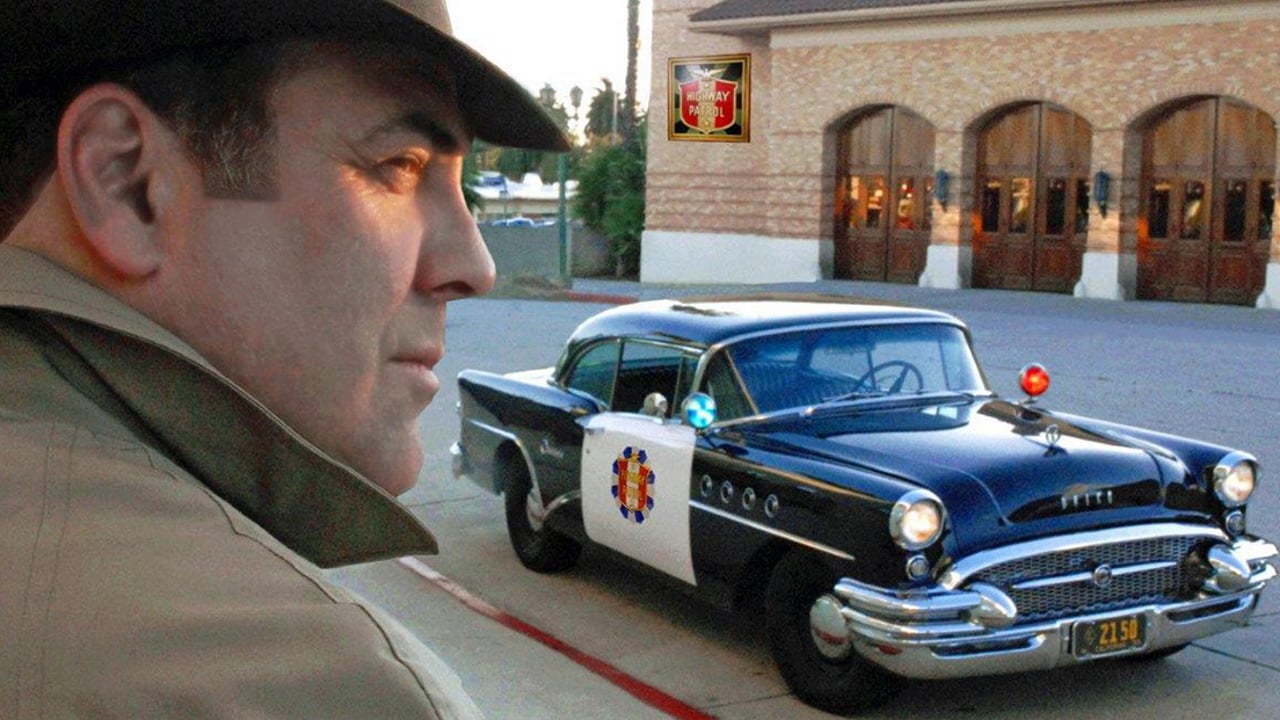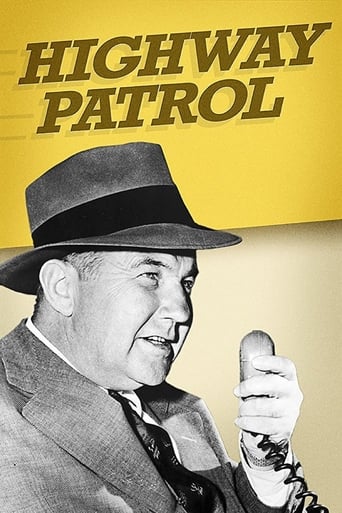

Wonderful character development!
... View MoreReally Surprised!
... View MoreGood concept, poorly executed.
... View MoreThis movie feels like it was made purely to piss off people who want good shows
... View MoreI was 12 when this season came out and had already made it clear that I wanted to go into Law Enforcement when I crew up. This show was short but exciting to watch even though all in black and white. We did not know much color back then on TV. Lucky to have a TV. I did spend 20 years as a deputy sheriff in a large county and am thankful for Broderick Crawford though I never could have been like him, he was better.For anyone who is interested, Amazon.com is now selling all four seasons but season 1 is the only expensive one and the other three are in short supply but at least available.I only wish the U.S. was like it was back then.
... View MoreI was a viewer of this show when it originally aired. Now it's one of the few shows I record to view on Time Warner Cable.It shows small town 50's USA with it's shops, businesses, cafes, motels and back roads in CA.I am amused by the "machine gun fire" speaking by Broderick Crawford even when giving orders to subordinates, I have never heard one of them ask of him "Would you repeat that, and speak a little slower and a bit more succinctly?" It also is an amazing look into the social fiber of America at that time, it showed an angry Korean Veteran that couldn't find a job using his faked knowledge of bazookas to help do robberies, innocent vacationing honeymooners being kidnapped as well as interesting dialogue.Do you wonder if American TV today is showing a positive or repulsive, ugly America to the rest of the world? Should it matter?
... View MoreIn 1950's Television, Syndicating of TV half-hours was truly was big business. By 'Syndication' we mean the sale of programming to individual stations in different markets for showing over said station at the individual managers' pleasure. This is much like a newspaper syndicate distributes comic strips or feature articles to various papers.* And the King of these Syndicated programs was ZIV Television Productions. What with Such entries as "SEA HUNT"', "SCIENCE FICTION THEATRE", "I LED THREE LIVES", "MacKENZIE'S RAIDERS", "WEST POINT" and others. They racked 'em up and kept 'em going', and in the process, became the independent TV stations' best friend.Although syndicated shows were usually looked down upon as being sub-par to the typical Network Programming, ZIV managed to get some shows out there that topped the "Webs" (Show Biz Jargon for Network) showings. Our featured Highway Patrol show was one of the most successful series in syndication, and was so for the vast majority of its run.The producers took a half hour and managed to weave in all kinds of criminal activity, all with Captain Dan Matthews (Broderick Crawford, Oscar Winner in 1950 for his lead performance in ALL THE KING'S MEN. There were many rank and file Patrolmen, who had come and gone during the series life on the air, and B.S.** But at least one member of the Highway Patrol was destined to become a career man in Law Enforcement. That Guy was William Boyett, a burly, athletically built sort of "Man's Man" of an actor who portrayed Sgt. Ken Williams. A few years later, in A.D. 1968, the rugged character actor retained his Rank of Sergeant, but being transferred to the Los Angeles Police Department and became Sergeant MacDonald on the non-syndicated Drama of Uniformed Big City Cops in Jack Webb's and R.A. Cinader's Mark VII, Ltd. & Universal Studios "ADAM 12" (1968-75).As far as the filming, Captain Matthews*** & Company were for the most part (if not completely) on location. These locations would be on the open Highways in Southern California, and in the Truck Stops, Greasy Spoon Grills, Public Kybos and the small towns dotting each route, like Pearls on a necklace. For this the series closely resembled the over-all look of films like WHITE HEAT, THE WILD ONE and so many of those American International epics that kept the Drive In Theatres.And as far as the realism is concerned we must remember that all Policemen, regardless of their locale or type of assignment, can and do run into all sorts of law-breaking and wrong-doers. Although the real Highway Patrols/State Police are usually assigned to the safe-guarding the highways and byways of our States, with the particular special attention to Traffic Enforcement, Accident Investigation and Safety Inspections of Commercial Traffic.And please remember, there is no such thing as that "Routine Traffic Stop" that we hear so much about on the 10:00 Newscast. The vast majority of serious, forcible felonies committed in the U.S. make some use of the automobile in facilitating their anti-social behaviour. A Cop doesn't know who he's stopping, so cut him some slack the next time when you're stopped.Who knows, maybe you'll even get a pass! NOTE:* In reality, the series are not "sold"to the individual stations, but rather rented or leased for a certain period of time.NOTE:** Now relax, it's not that B.S.but rather the abbreviation for "Before Syndication". Re-runs of successful shows would be sent out via the syndication route to the individual stations for another bite at the Old Apple. Often these re-run episodes had alternate series titles; like "BADGE 714" for "DRAGNET". "SAN FRANCISCO BEAT" for "THE LINEUP" and for our "HIGHWAY PATROL", we had "10-4", Captain Matthews's favourite tag-line.NOTE*** Broderick Crawford's Captain Dan Matthews became so much of a figure in American Pop Culture, that he made an uncredited appearance as himself, a motorist stopped by Ponch and John for traffic violation! That was in the 9th episode that first year entitled, "Hustle"
... View MoreFor some reason, Broderick Crawford spent a considerable amount of time on most if not all episodes of "Highway Patrol" walking around half of the patrol car and then getting into it. If the camera showed him standing by the passenger door, he'd walk around the front or back to enter the driver's seat. If he was standing just outside the driver's door, he'd first make sure that a uniformed officer was in or approaching the driver's seat, and then walk around the front or back and get into the passenger seat. Other observers have pointed this and similar issues out, independently of myself, over the years."Highway Patrol" is now newly available on a local station I can pick up. It's so obvious that all the filming was in California -- and in at least one episode the scenes were clearly in a residential, hilly section of the city of Los Angeles, with LA street signage, and City Hall not far away at all in a background scene. Yet when I saw the show as a kid I knew nothing of such issues. Hence, just as Beaver Cleaver's "Mayfield" was never definitely linked to one state, it was fun to pretend that Crawford and crew provided law enforcement in an unnamed and unnameable state, in a rural area where people knew to call the "highway patrol" for first response. There were and still are areas like that in the U. S.And, yes, Broderick Crawford still has to walk around the car before he gets in and drives away, usually to the familiar music.
... View More